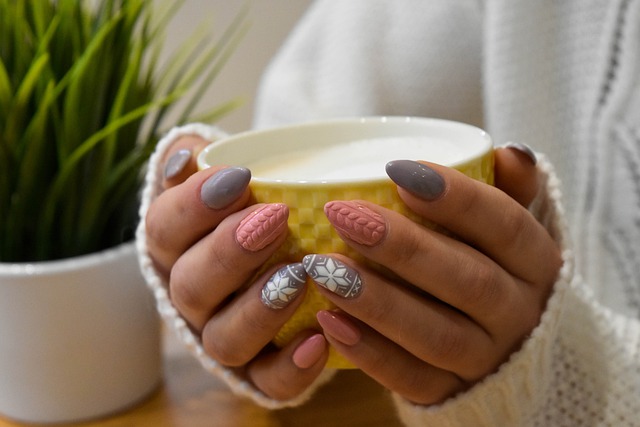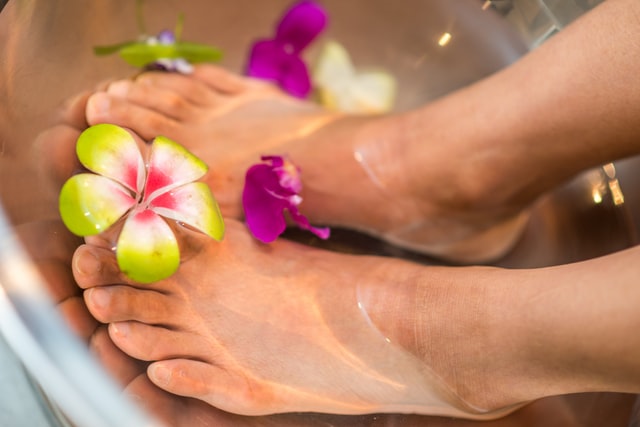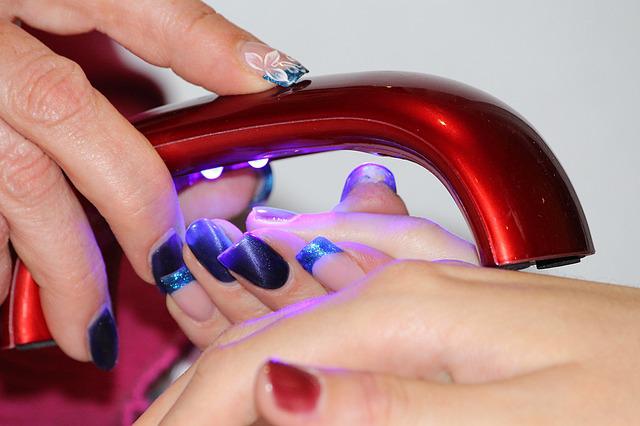You're probably no stranger to the discomfort and frustration of fungal infections, but did you know that you can heal them naturally? By incorporating a few simple remedies and lifestyle modifications into your daily routine, you can combat fungal growth and prevent future infections. You'll start by applying topical treatments like tea tree oil and coconut oil directly to the affected area, but that's just the beginning. As you begin to see results, you'll want to know more about the underlying causes of fungal infections and how to make lasting changes to keep them at bay.
Causes of Fungal Nail Infections
You get a fungal nail infection when a fungus infects the tissue underneath your toenail or fingernail, often through a cut or crack in the nail. This type of infection is more common in toenails, especially if you walk barefoot in areas where fungi thrive, such as swimming pools, gyms, or showers. You're also more likely to develop a fungal nail infection if you have a weakened immune system, diabetes, or a history of athlete's foot.
Your daily habits can also contribute to the development of a fungal nail infection. If you wear shoes that make your feet sweat, don't dry your feet thoroughly after showering, or share personal care items, you increase your risk of infection. Additionally, if you have a job that involves exposure to water or harsh chemicals, you're more susceptible to developing a fungal nail infection. By understanding the causes, you can take steps to prevent and treat fungal nail infections effectively.
Benefits of Natural Remedies
Harnessing the power of natural remedies can prove highly effective in treating fungal nail infections, offering a gentler alternative to conventional medications. You'll find that many natural remedies not only target the infection but also promote overall nail health. By opting for natural treatments, you can avoid harsh chemicals that may cause side effects or interact with other medications.
Natural remedies often have antimicrobial properties, which help combat fungal infections. They can also boost your immune system, empowering your body to fight off the infection more efficiently. Additionally, natural treatments can be more budget-friendly than prescription medications, making them an accessible option for those seeking affordable care.
You'll also appreciate that natural remedies can be used in conjunction with other treatments, creating a thorough care plan. By incorporating natural remedies into your routine, you'll take a proactive approach to healing and maintaining healthy nails. With the right combination of natural treatments, you can tackle fungal infections and restore your confidence.
Tea Tree Oil Treatment
Treating fungal nail infections with tea tree oil involves applying its antifungal properties directly to the affected area to inhibit the growth of fungi. You'll want to start by cleaning and drying the affected nail and surrounding skin. Then, using a cotton swab, apply a few drops of tea tree oil to the nail and gently rub it in. You can also mix a few drops of tea tree oil with a carrier oil like olive or jojoba oil if you have sensitive skin.
To get the most out of this treatment, you'll want to apply the tea tree oil twice a day, morning and night, and make sure to trim and file the nail regularly to help the oil penetrate. It's also important to be patient, as it can take several months to a year or more for the infection to fully clear up. Keep in mind that tea tree oil can be quite potent, so if you experience any irritation or discomfort, you may need to adjust the amount you're using or switch to a more diluted solution. By sticking to this routine, you can harness the antifungal power of tea tree oil to help heal your fungal nail infection.
Coconut Oil and Lemon Juice
The combination of coconut oil and lemon juice provides a natural and effective remedy for fungal nail infections by leveraging the antifungal properties of both ingredients. You can create a homemade treatment by mixing equal parts coconut oil and lemon juice. Apply this mixture directly to the affected area using a cotton swab, making sure to cover the entire nail and surrounding skin. Let it sit for 30 minutes before rinsing with warm water. For ideal results, repeat this process twice a day.
As you continue with this treatment, you'll notice the fungal infection start to clear up. Coconut oil's medium-chain fatty acids disrupt the fungal cell membrane, ultimately leading to its demise. Meanwhile, lemon juice's acidity creates an environment that inhibits fungal growth. You'll be taking a two-pronged approach to tackling the infection. Be patient, as it may take some time to see results. Sticking to this routine and combining it with good hygiene practices will have you on the road to recovery in no time. Remember to trim your nails straight across and keep your feet clean and dry to prevent the fungus from spreading.
Apple Cider Vinegar Soak
Soak your feet in a solution of apple cider vinegar and water to create an environment that's inhospitable to fungal growth. You'll want to mix equal parts apple cider vinegar and water in a foot bath or large bowl. Then, soak your feet for at least 30 minutes, twice a day. The acidity in the vinegar will help balance the pH of your skin, making it harder for fungal infections to thrive.
As you soak, you'll be reducing the fungal load on your skin, which will help alleviate symptoms like itching, redness, and flaking. Apple cider vinegar also has antimicrobial properties, which will help prevent the spread of the infection. Just be sure to dry your feet thoroughly after soaking, paying extra attention to the areas between your toes. This will help prevent moisture from accumulating and creating an environment where fungal infections can grow. By incorporating this simple and natural remedy into your daily routine, you'll be taking a powerful step towards healing your fungal infection.
Turmeric and Ginger Paste
While apple cider vinegar soaks can help create an environment that's inhospitable to fungal growth, you can also attack the infection directly with a potent paste made from turmeric and ginger. You'll need 1 teaspoon of turmeric powder and 1 teaspoon of freshly grated ginger. Mix these ingredients with a small amount of water to create a paste. Apply this paste directly to the affected area, making sure to cover the entire nail and surrounding skin. Leave it on for 30 minutes to an hour before rinsing off with warm water.
The active compounds in turmeric, such as curcumin, have potent antifungal and anti-inflammatory properties that can help combat fungal infections. Ginger, on the other hand, has natural antimicrobial properties that can help prevent the spread of infection. By using this paste regularly, you can help reduce the severity of your fungal infection and promote healthy nail growth. For best results, apply the paste twice a day, in the morning and before bed. Be consistent, and you'll start to see improvements over time.
Essential Oils for Nail Health
Boost your nail health with essential oils, which offer a natural and potent way to combat fungal infections and promote healthy nail growth. You can use tea tree oil, which has antifungal properties that help prevent the spread of infection. Mix a few drops of tea tree oil with a carrier oil like coconut or olive oil and apply it to your nails and cuticles. You can also use oregano oil, which has antibacterial properties that help fight off fungal infections. Lavender oil is another option, known for its calming effects and ability to promote healthy nail growth.
To get the most out of essential oils, you'll want to use them consistently. Try applying a few drops to your nails and cuticles twice a day, morning and night. Be sure to dilute the essential oils with a carrier oil to avoid irritating your skin. With regular use, you can help combat fungal infections and promote healthy, strong nails. Remember to choose high-quality essential oils that are pure and undiluted to get the best results. By incorporating essential oils into your nail care routine, you can take a significant step towards healthier, fungus-free nails. Additionally, while focusing on your nail health, it’s a great time to explore other aspects of self-care, such as learning skincare tips for oily skin to maintain a balanced and radiant complexion. By dedicating a few minutes each day to these routines, you can establish habits that benefit your overall appearance and well-being. Remember, consistency and using the right products are key to achieving lasting results.
Dietary Changes for Fungal Infections
Making targeted dietary changes can be a crucial step in combatting fungal infections and supporting your overall nail health. You'll want to focus on consuming foods that are rich in antifungal properties and nutrients that promote healthy nail growth. Increase your intake of leafy greens like spinach and kale, which are packed with antioxidants and vitamins. You should also eat more fatty fish, such as salmon, which are high in omega-3 fatty acids that help reduce inflammation.
In addition to incorporating these foods into your diet, you'll want to limit or avoid foods that can exacerbate fungal infections. Sugary and processed foods can feed fungal growth, so try to cut back on these as much as possible. You should also reduce your consumption of dairy products and refined carbohydrates, as these can trigger inflammation and worsen fungal infections. By making these dietary changes, you'll be supporting your body's natural ability to fight off fungal infections and promoting healthy nail growth.
Preventing Future Infections Naturally
To safeguard your nails against future fungal infections, you'll need to adopt a proactive approach that incorporates natural prevention methods into your daily routine. This will help create an environment that's unfavorable to fungal growth, protecting your nails from infections. You can start by keeping your feet and hands clean and dry, especially after showering or exercising. Wear shoes and socks made from breathable materials, and avoid sharing personal care items to prevent the spread of fungal spores.
In addition, incorporate antifungal essential oils like tea tree oil and lavender oil into your nail care routine. Mix a few drops of your chosen essential oil with a carrier oil like coconut or olive oil and apply it to your nails and cuticles. This will help to create a barrier against fungal infections. Regularly trimming and filing your nails, while also avoiding sharing nail care tools, will also help in preventing the spread of fungal infections. By adopting these simple yet effective habits, you'll be able to naturally prevent future fungal infections and keep your nails healthy and strong.
At a Glance
You've taken the first step towards healing your fungal infection with a natural care routine. By combining topical remedies like tea tree oil and coconut oil with lifestyle modifications such as a balanced diet and good hygiene, you're supporting your body's natural defense. Continue to prioritize your health and take preventative measures to avoid reinfection. With persistence and patience, you can overcome fungal infections and maintain healthy, thriving nails and skin.






